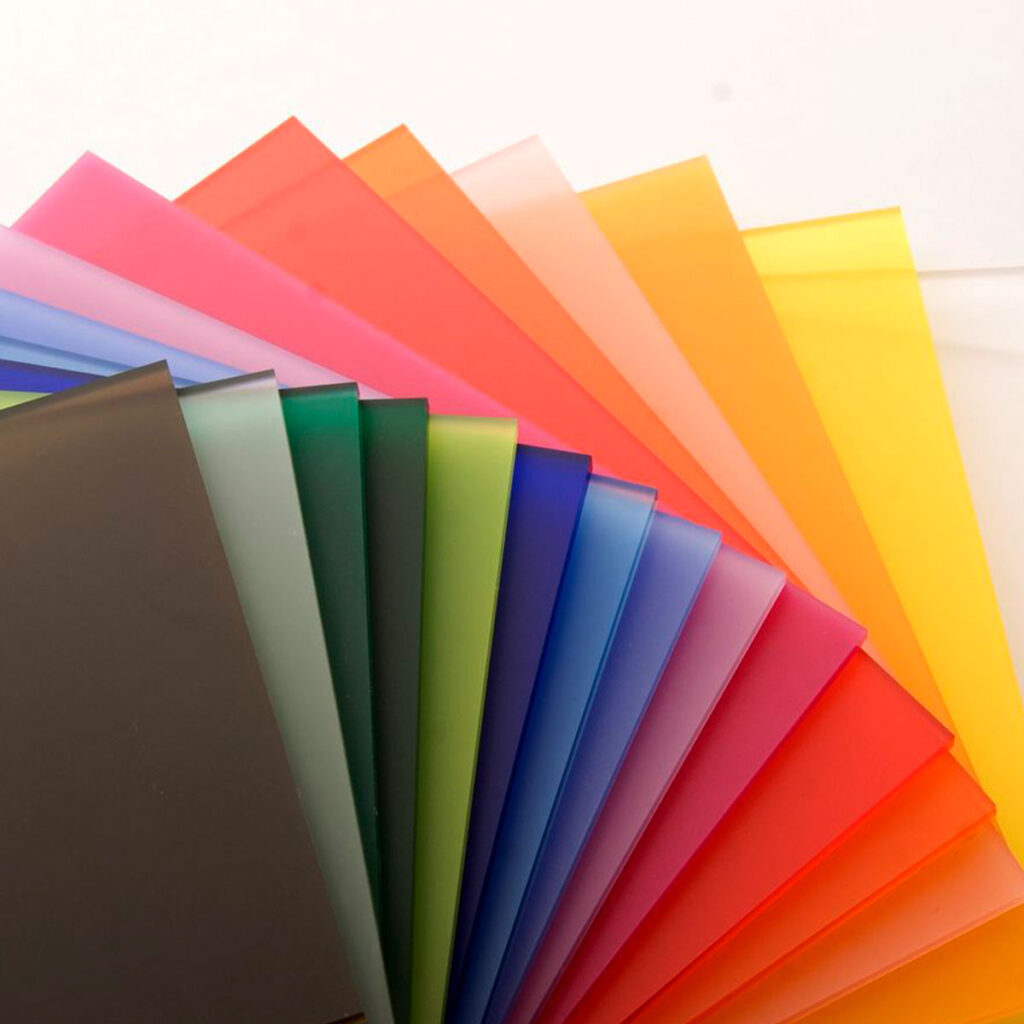PMMA Polymethyl methacrylate is highly biocompatible, 100% recyclable.
PMMA can be reprocessed at dedicated plastic recycling facilities, before being melted and extruded into new items, creating closed-loop supply chains and building a circular economy.
PMMA, the key type of acrylic, can be recycled in several ways. This normally involves subjecting the resin to pyrolysis.
It is possible to recover the monomer from PMMA scrap by depolymerization. PMMA has been successfully depolymerized by contacting with molten lead resulting in MMA with a purity more than 98%.

Plastic Recycling
PMMA Recycling
PMMA scrap is not classed as hazardous waste.
PMMA releases no pollutant substances to the environment. At the end of its product life and after careful separation from other materials, PMMA can be used for energy recovery and chemical or mechanical recycling.
PMMA features a range of other benefits
- Lightweight
- Easily machined and processed by standard mechanical and thermal techniques.
- Insoluble in water, resistant to salty water.
- PMMA is fully recyclable.
- Some grades are approved for food contact.
- PMMA does not contain any toxic materials or heavy metals, which may cause environmental damage or health risks.
- When acrylic burns, it does not produce toxic or corrosive gases which is compliant with international standards.
- Easy maintenance (cleaning & polishing).
Plastic Recycling
PMMA ADVANTAGES
Myriad of colour choices with excellent stability and surface effects.
PMMA can be further modified by incorporating different additives. These modifications are typically performed to improve specific properties of the polymer, usually targeted toward specific applications. Examples of properties that can be adjusted in this way are impact resistance, chemical resistance, light diffusion, UV light filtering, or optical effects.

Light Transmission
Typical PMMA grades allow at least 92% of light to pass through it, which is more than glass or other plastics. This outstanding clarity enables the use of PMMA in many different optical and related applications.

UV-Stability & Durability
Because it is inherently stable to UV-light, PMMA is used for many outdoor applications, in which it maintains its original color and finishes for many years.

Surface Hardness
These properties enable its use in many different applications where lasting beautiful appearances are important, such as automotive body parts, luminaires, on furniture or kitchen or bath walls or cabinet facades.
Tons of
Plastic Waste Dumped
Worldwide in 2022.
